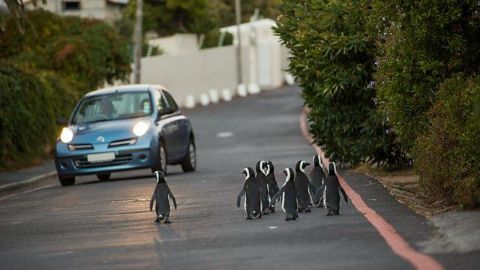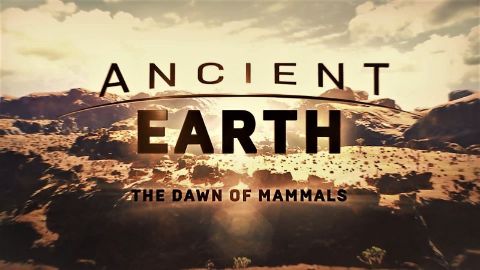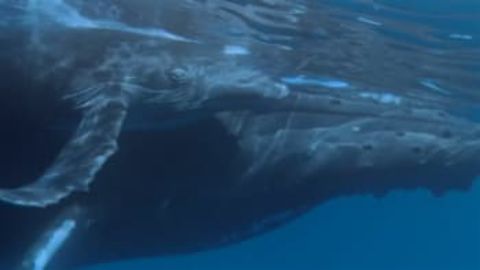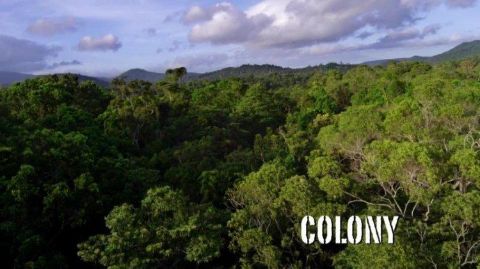You might also like
More than a billion people around the world commute into cities each day, and they are not alone. The world's wildlife is commuting too. A steady flow of animals journey in and out of cities to find food and shelter or to start a family. Leaving the wilderness they must overcome the unique challenges that the urban world throws at them to benefit from the opportunities on offer. This episode explores whether the secret to an animal's success in this fast-changing world is to keep one foot in the wild and one in the city, becoming a wild commuter. It seems that all over the world animals are finding that the city can offer opportunities that are harder to come by in the natural world. Some, like African penguins, whose population has plummeted by 80 per cent in the last 50 years, find shelter in the city. By nesting in Cape Town they are safer from predators, and with relatively easy access to their fishing grounds they have the best of both worlds. Many other animals commute into cities because they are filled with food. In St Lucia, South Africa, that includes hippos. Able to eat up to fifty kilograms of grass in a single sitting, they have developed a taste for the short, manicured lawns and come to town every night to dine out. St Lucia's human residents have learnt to give the hippos the space they need during their night-time raids. Black bears need to eat more than 20,000 calories a day to survive their six-month hibernation through winter, and using their acute sense of smell they can easily track down leftovers. In North America they come into towns and cities in search of food. Many animals displaced from their natural habitat are now using their wild skill set in the city to help fulfill their needs. Could this be the beginning of a new and very modern migration?
S1E2 • Cities: Nature's New Wild • 2018 • Nature
Thanks to new technologies combining genetics, ethology, geology and even particle physics, paleontologists can now recreate the missing branches of the tree of life. Because of this, it has been discovered that prehistoric mammals were more varied and numerous than previously thought.
S1E3 • Ancient Earth: Series 2 • 2018 • Nature
Enter the world of the lizard: from the chameleons, masters of the arboreal life to geckos tapping a code to plant-hopper insects and baby pygmy blue-tongued skinks huddling in their burrows long after birth. In the deserts are found some of the most bizarre lizards: baby Bushveld lizards mimicking acid-squirting beetles; the well-armoured and bizarrely spiky; thorny devils and the lizard kings - the Australian monitors - fast, intelligent and efficient hunters.
S1E3 • Life in Cold Blood • 2008 • Nature
A look at why a humpback whale would hold a diver hostage, how a colony of 1.5 million animals hide from the world in plain sight, and how a surprising stash of acorns could disrupt a whole town.
S1E3 • Nature's Strangest Mysteries: Solved • 2019 • Nature
Often referred to as the gray ghost or ghost of the mountains, this animal's rarity and elusiveness was legendary. In the past, it was known as the ounce, but today we've settled on the name snow leopard.
S1E2 • The Secret Lives of Big Cats • 2019 • Nature
Watching the fascinating display of leafcutter ants at the Natural History Museum in London is one of my favourite ways to while away a few hours, but David Attenborough is operating on a much grander scale here in the last in the series. In Argentina he observes some cousins of the leafcutters who are part of a community so vast it spans an entire continent. It’s one of the mandible-dropping facts in a look at one of the key inventions of arthropods: colonies. From termites and honey bees to the leafcutters, it seems that if you want to get ahead, you move to the big city.
6 • Micro Monsters with David Attenborough • 2013 • Nature





